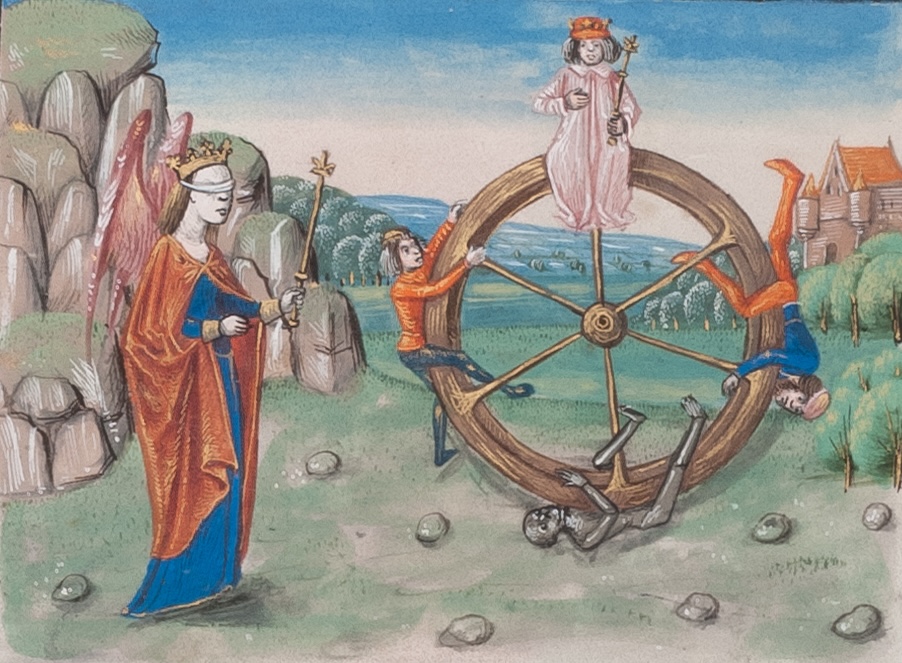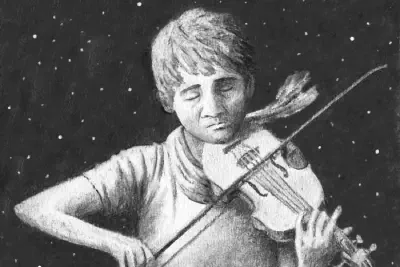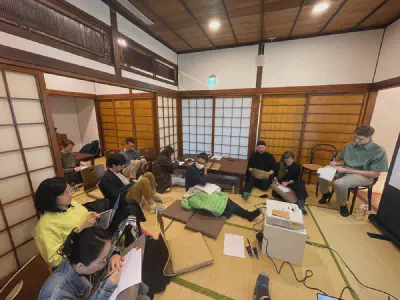Yesterday, I was at the Wansha Performing Arts Centre (涴莎藝術展演中心) in Tainan, for our regular Wind&Bones philosophy salon. The salon is a regular event for people to come together and chat about philosophy in both Mandarin and English. It’s free to attend, held in Wansha’s beautiful concert hall, and since we started the salon over eighteen months ago, we have had hundreds of philosophers join us to talk about everything from love to art to the limits of philosophy itself.
Luck, Fate and Philosophy
Yesterday’s salon was about luck, fate and philosophy. The term for “fate” in Mandarin is mìngyùn 命運 (miā-ūn in Taiwanese), and it provides a lot of rich possibilities for reflection. The term mìngyùn has two elements, or two contrasting dimensions: mìng and yùn. In a terrific paper on fate and fortune in Taiwan, anthropologist Stéphanie Homola explains these two dimensions as follows:
Fate (mìngyùn 命運) is made up of two elements. The mìng 命 is the innate (xiāntiān 先天) part of fate: it is determined at birth for one’s whole life and cannot be changed. The yùn 運 does not lie in the self but in relations with the outside world. It stands for the reversible part of fate, the part that the individual can change to his advantage and is therefore considered to be acquired (hòutiān 後天). The yùn represents the configurations, good or bad, that arise from the convergence of the ming with external circumstances.
So while we were talking about mìngyùn, we were also talking about the question of how to draw the line between what is fixed and immutable in our lives (our mìng), and what is, well, negotiable (yùn). In other words, we were asking about the freedom we have to shape our own futures.

Free Will and Determinism — Not the Only Game in Town
I am increasingly convinced that this notion of mìngyùn is a more fruitful way of thinking about human choice than often arid philosophical notions of free will versus determinism.
As the philosopher François Jullien argues in his book From Being to Living, ideas of will and free will are entangled in a complex philosophical, religious and literary history that traces its way back through European thought to Ancient Greece. And these traditions have solidified into a kind of philosophical impasse where we find ourselves grappling with big metaphysical questions of freedom and determinism.
And one thing that the idea of mìngyùn can do is that it can allow us to explore these questions of what it means to shape our lives without getting stuck between these big metaphysical questions. Because, leaving these seemingly insurmountable questions aside, it is true—experientially, at least—that human beings, like other animals, can and do make choices, and do shape their own paths through the world. And mìngyùn as an idea allows us to think about this subtle process of fashioning our lives and our desitines, without having to get sucked into the same old questions.
Of course, there are certain philosophers who won’t want to play along with this, who will insist that questions of free will versus determinism are the only game in town. But I’m not so sure that this is true—and besides, I’m pretty sure I don’t want to live in a town where you are only allowed to play one game. If you are interested in all this, then the chapter on free will and Chinese traditions of thought in The Routledge Companion to Free Will, written by Kai Marchal and Christian Wenzel, is a good starting point.
But for now, I’m going to leave these questions to one side, as we did in yesterday’s salon, and think instead about mìng and yùn. How are we to understand these terms? What use can they be to us?
One approach, perhaps, is that we can think about mìng as that which is already written in our lives (in our genes, perhaps, or in the accidents of our birth), and thinking about yùn as that which is yet-to-be-written, or is in-the-process-of-being-written. And this process of writing is not just about making single, momentary decisions, but is an ongoing process of shaping and reshaping, in response to changing conditions (Jullien talks about how “tenacity” or chí 持 plays a bigger role in Chinese thought than momentary “choice”).
It is precisely here—somewhere in that space between the things that are already written, and the things that are in the process of being written—that we create our futures—or we co-create them in dialogue with our environments (here, the work of Mercedes Valmisa is both interesting and relevant).
Calculating Fate?
All of this led to a fun and lively discussion. But at the end of the session, I wanted to add in a more experimental element. In Taiwan, if people want to sort through the complexities of mìngyùn, they often go to suànmìng 算命 (literally “calculate fate”), or practice various forms of divination (占卜 zhānbǔ). Taiwan has an astonishingly varied culture of divination, from using the I Ching (易經) to poa̍h-poe divination in temples with moon blocks (跋杯), to divination by trained parrot, to the seemingly ubiquitous use of tarot cards. It can sometimes seem that almost everyone in Taiwan, at some time or another, goes to practice divination. And the interesting question is why.
One could see this as a regrettable flowering of superstition. But I’ve come to see that there is something more interesting is going on. Branding all this feverish activity “superstition” doesn’t really have any explanatory power. It is just a shortcut to dismissing it. But—and here, anthropologists are more useful to thinking through the issues than philosophers—if you hang out long enough with people engaging in these things to see what is going on, a much more complex and interesting picture emerges. Divination in Taiwan thrives, in part, because people find it useful—as a way of taking stock of their situation, as a way of creatively writing, re-writing, or co-re-rewriting more fruitful futures, both for themselves and for those around them.
Wind&Bones Divination
So I decided to end the philosophy salon on fate, luck and philosophy with an experiment in divination. For the experiment to work, before the salon, I had to invent my own divinatory scheme. And because the session took place under the banner of Wind&Bones, the small press I co-run, I decided to call it “Wind&Bones Divination” (in Mandarin, fēnggǔ zhānbǔ 風骨占卜).
The process was simple. I asked participants to take a slip of paper where they were to write a question about a situation that they were facing. Then they were to roll the dice twice.
- The first roll gave participants their “Wind Divination” (風卜 fēngbǔ), which told them what was changeable about their situation.
- The second roll was gave them their “Bone Divination” (骨卜 gǔbǔ), which told them what was unchangeable about their situation.
In this way, “wind” (風 fēng) mapped, more or less, onto yùn (運)and “bone” (骨 gǔ) mapped, again more or less, onto mìng (命).

Then all I had to do before the session was to come up with a set of divinatory responses, and translate the whole lot into Mandarin. I invented these at random—with some stealing from the I Ching (易經), cooking up some fun and intriguing images that I thought might provoke further thought.
This was the final chart (just the English version).
| Wind Divination 風卜 | Bone Divination 骨卜 | |
|---|---|---|
| 1 | An invisible crack can become an abyss. | The hamster stays in its nest. Danger averted! |
| 2 | Even the gods cannot mix water and oil. | When you lose a cup, the greatest loss is the emptiness it contains. |
| 3 | The boundary between sound and silence is imperceptible. | The pine tree bends in the storm, but does not break. |
| 4 | A drunk elephant can destroy a whole village. | The crows come home to roost. |
| 5 | Moss grows only in the shadows. | The ancestors do not comb their beards. |
| 6 | The tail of the fox is wet | Even fish may become ghosts; but ghosts do not become fish. |
So, for example, if you asked “Will my next book be successful?”, and then you rolled a 3 and a 5, the resulting divination would be like this:
- Wind (changeable): The boundary between sound and silence is imperceptible.
- Bone (unchangeable): The ancestors do not comb their beards.
It was then down to participants to make sense of this response. I asked them to make notes on their divinatory response, any reflections they had about the result, and how to make notes on how useful they found the whole process. After that, we split into groups to discuss.
Divining New Futures, Starting New Conversations
What was interesting is that for a large proportion of the participants, the responses given by this process of divination—the credentials of which were admittedly somewhat suspect—were nevertheless both illuminating and fruitful. They were illuminating in the way that they threw light upon the question at hand. And they were fruitful in the way they gave participants new perspectives on the questions by which they were preoccupied.
This experiment in divination also led to a flowering of conversations that meant, by the end of the salon, nobody wanted to leave. And maybe, I find myself now thinking, this is what divination does best. It opens up new conversations—with ourselves and with each other. It gives rise to new stories and new lines of thought. It asks us to think about our lives and the parameters of these lives with more suppleness, more cunning, more creativity and more boldness.
But by this point, we were out of time. So I brought the salon to a close and thanked everybody for coming. The participants in the salon, however, had other ideas. They continued talking, clutching their Wind&Bones Divination slips, reluctant to leave.
And the conversations went on and on, long after the microphones were turned off, after the screen for the presentation was rolled back towards the heavens, after the staff came in to rearrange the chairs and put the room back in order. And still, by the time we left, there were still a few stragglers remaining in the concert hall, talking about philosophy, about divination, and about the complexities of fate—the wind and the bones of it.
References
Homola, S. (2013). Pursue good fortune and avoid calamity: The practice and status of divination in contemporary Taiwan. Journal of Chinese Religions, 41(2), 124–147. https://doi.org/10.1179/0737769X13Z.0000000005
Jullien, F, trans. Michael Richardson and Krzysztof Fijalkowski. (2020). From Being to Living: A Euro-Chinese lexicon of thought. SAGE Publications
Marchal, K. and Wenzel, C.H. (2016), Chinese Perspectives on Free Will, in The Routledge Companion to Free Will.



